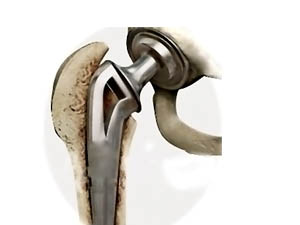Osteoarthritis is a common degenerative joint condition seen amongst the physiotherapy industry with knees being one of the most common areas. When patients present with knee osteoarthritis a common statement we hear is “I don’t want surgery”. The Australian National Joint Registry recorded 54,277 knee replacements in 2014 with 11,732 of these being revisions. Revisions refers to replacing a prosthesis or part of a prosthesis that was originally put in the knee. The majority of the time knee replacements are necessary as patients are in an unbearable state of pain. But sometimes patients haven’t looked at non-surgical options to help prevent or prolong the need for a knee replacement. So what can you do to avoid a knee replacement now? Below are 5 non-surgical options someone with knee osteoarthritis should try before surgery.
- Home Exercise Program: a common theme seen amongst patients with knee osteoarthritis is decreased strength in their legs. Muscles are one of our main supporters of our joints and when they are strong, our joints are strong. In the knee our main muscle supporter are the quads or thigh muscles. When these muscles are strong, along with our hamstrings, calf and glute muscles, the pressure our knee has to bear is decreased and therefore can alleviate some of your pain. A simple weight bearing or non-weight bearing home exercise program can be tailored to your needs.
- Hydrotherapy: for patients experiencing the extreme end of pain in their knee, or love the water, Hydrotherapy provides the ability to complete strength training without the force going through our knees as we would experience on land. The exercises completed in the pool can be matched to that which you would do in a home exercise program with the added support from the water. Patients tend to find they are able to do more exercise in the pool as well as finding the warmth of the water soothing for their joints.
- Group Exercise Classes: for those individuals who find it hard to get motivated to exercise, Group Exercise Classes provide a great way to exercise, socialise and have fun. Various clinics, gyms and community health centres provide exercise classes targeted at osteoarthritic clients.
- Diet: a contributing factor to pain experienced in osteoarthritic individuals is increased body mass. Sometimes when we start to experience the onset of pain due to osteoarthritis we stop exercising and along with an unbalanced diet we can cause increased pain in our knees as our body weight increases the force going through them. Some simple dietary changes can help decrease our body mass and therefore the forces our knees are under.
- Education: overall patients need to be educated around osteoarthritis and what tips and tricks they can use in everyday life to help manage the condition. These can be as simple as advising on comfortable sleeping positions for those experiencing soreness during the night.
Overall knee osteoarthritis can be a debilitating condition that we can’t change, however we can manage it without the need for surgery. Book in to see one of our physiotherapists for more information.
